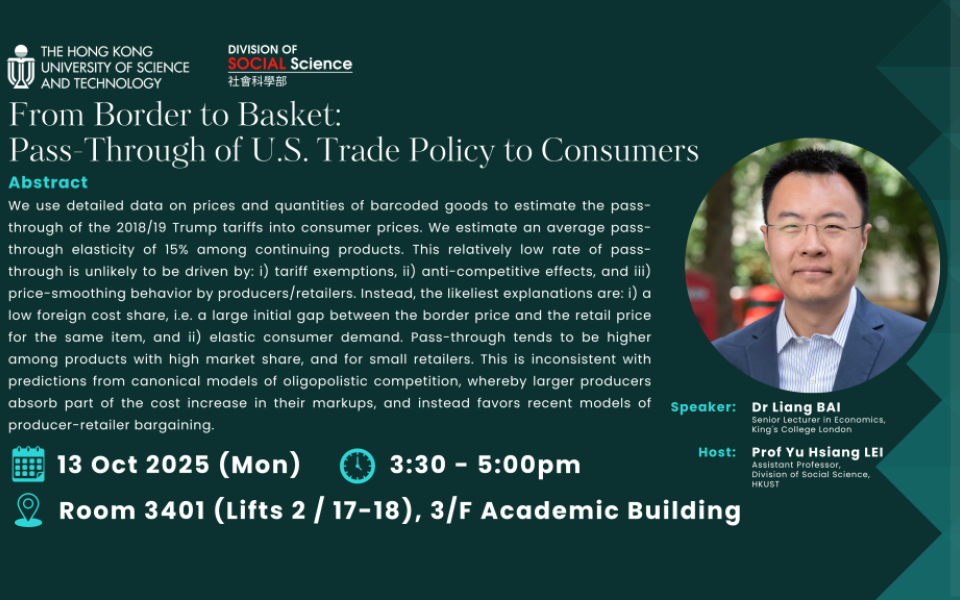(Joint with Torsten Jaccard and Sebastian Stumpner)
We use detailed data on prices and quantities of barcoded goods to estimate the pass-through of the 2018/19 Trump tariffs into consumer prices. We estimate an average pass-through elasticity of 15% among continuing products. This relatively low rate of pass-through is unlikely to be driven by: i) tariff exemptions, ii) anti-competitive effects, and iii) price-smoothing behavior by producers/retailers. Instead, the likeliest explanations are: i) a low foreign cost share, i.e. a large initial gap between the border price and the retail price for the same item, and ii) elastic consumer demand. Pass-through tends to be higher among products with high market share, and for small retailers. This is inconsistent with predictions from canonical models of oligopolistic competition, whereby larger producers absorb part of the cost increase in their markups, and instead favors recent models of producer-retailer bargaining.
Liang Bai is a Senior Lecturer in Economics at King's Business School. His research interests are in development economics, international trade, and political economy. His recent work has studied the consumer welfare implications of U.S.-China trade, as well as obstacles to optimal investment in low-income settings. His work has been published in journals including American Economic Review: Insights, European Economic Review, and the Review of Economics and Statistics. Liang holds a PhD in Economics from the University of California at Berkeley, and an MSc in Econometrics and Mathematical Economics from the London School of Economics.
Host: Prof Yu Hsiang LEI, Assistant Professor, Division of Social Science, HKUST
